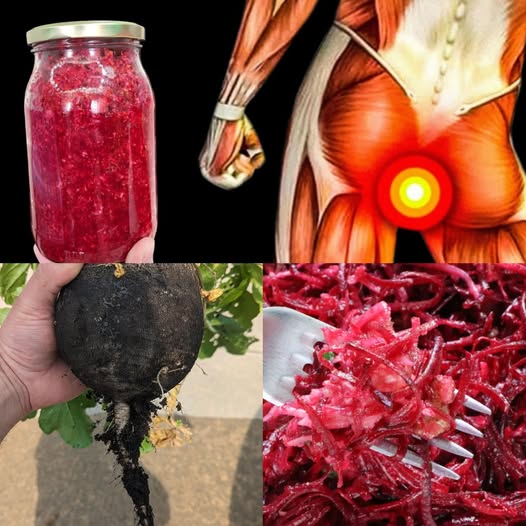Introduction: The Dark Side of Cloves—A Super Spice with Hidden Dangers

Cloves are celebrated for their intense flavor, therapeutic oils, and anti-inflammatory properties. Used for centuries in traditional medicine and modern health trends alike, cloves are often praised as a “miracle spice.” However, while cloves offer many health benefits, they are not safe for everyone.
In fact, for individuals with specific health conditions, clove consumption can trigger serious side effects—from severe allergic reactions to dangerous drug interactions and internal bleeding.
In this comprehensive, research-backed guide, we’ll reveal 7 health conditions that demand you avoid cloves, and answer the most common questions surrounding this potent spice. Whether you’re a wellness enthusiast or a cautious consumer, this article will help you make informed choices and protect your health.
Why Cloves Can Be Dangerous: What Most People Don’t Know
Cloves contain a powerful compound called eugenol, which is responsible for their strong aroma, analgesic effects, and antimicrobial properties. While beneficial in moderation, eugenol becomes toxic in higher doses or when combined with certain medications or medical conditions.
Studies have shown that eugenol can interfere with blood clotting, liver function, and blood sugar regulation. That’s why cloves—especially clove oil or clove supplements—must be used with caution.
✅ 7 Health Conditions That Require You to Avoid Cloves
1. Bleeding Disorders – Increased Risk of Internal Hemorrhage
Cloves act as a natural blood thinner due to eugenol’s anticoagulant effect. If you have hemophilia or any bleeding disorder, cloves may significantly increase your risk of:
- Bruising easily
- Delayed clotting
- Internal bleeding
⚠️ Cloves can interact dangerously with blood-thinning medications like Warfarin and Aspirin.
Avoid cloves entirely if you’re scheduled for surgery or are on anticoagulant drugs.
2. Liver Disease – Potential for Toxic Build-Up
Eugenol is metabolized in the liver, and in individuals with liver disease, this can result in toxicity. In fact, consuming clove oil has been linked to acute liver failure in rare cases.
A 2020 study published in Toxicology Reports indicated that even moderate doses of clove essential oil can cause hepatotoxicity in those with compromised liver function.
🧬 Cloves may worsen inflammation in those with fatty liver disease or hepatitis.
3. Diabetes – Unexpected Blood Sugar Spikes or Drops
Although some claim that cloves help regulate blood sugar, this isn’t universally safe. Diabetics on insulin or oral medication may experience:
- Hypoglycemia (dangerously low blood sugar)
- Unpredictable glucose fluctuations
Why? Cloves increase insulin sensitivity, which can be beneficial—but dangerous when combined with prescription meds.
💉 Always consult your endocrinologist before using cloves in your diabetic diet.
4. Gastrointestinal Issues – Worsening of Ulcers and Acidity
Cloves are known to stimulate gastric acid secretion. While this aids digestion in some, it can be harmful if you have:
- Gastric ulcers
- GERD (acid reflux)
- Irritable bowel syndrome
🔥 Cloves may irritate the stomach lining, increase acidity, and cause heartburn.
If you’re prone to digestive inflammation, steer clear of clove teas and oils.
5. Pregnancy and Breastfeeding – Not Worth the Risk
While cloves are often used to ease dental pain in pregnancy, high doses or essential oil forms are considered unsafe. Cloves may:
- Stimulate uterine contractions (leading to premature labor)
- Pass through breast milk and affect infants’ liver function
👶 According to the American Pregnancy Association, clove oil should be avoided during pregnancy and lactation.
Stick to food-based quantities only—and never self-medicate with clove oil when expecting.
6. Allergies – Anaphylaxis Risk
Some individuals are allergic to eugenol or clove components and may experience:
- Skin rashes
- Itchy throat
- Swelling of the lips or tongue
- Anaphylactic shock in severe cases
🌡️ Even trace amounts in food or herbal blends can trigger symptoms.
Always check ingredient labels, especially in processed or spiced foods.
7. Children Under 2 Years Old – Toxic and Life-Threatening
Clove oil is especially dangerous for infants and toddlers, even in small doses. It can cause:
- Respiratory distress
- Liver failure
- Seizures
🚫 Never use clove oil for teething relief in babies—it’s toxic when swallowed.
For children, clove products should be strictly avoided unless prescribed by a pediatrician.
📌 FAQs: Common Questions About Clove Safety
❓Can cloves interact with medications?
Absolutely. Cloves may enhance or inhibit the effects of:
- Blood thinners (Warfarin)
- Anti-inflammatory drugs (Ibuprofen)
- Diabetes medications (Metformin, insulin)
- Anticonvulsants
✅ Always consult your physician if you’re on medication and plan to use cloves medicinally.
❓Is it safe to chew cloves daily?
For healthy adults, chewing 1-2 whole cloves a day might support oral health—but it’s not risk-free. If you have sensitive gums, bleeding issues, or are on medication, avoid the habit altogether.
❓What are signs of clove toxicity?
Symptoms of overconsumption or toxicity include:
- Nausea, vomiting
- Dizziness
- Low blood sugar
- Liver pain
- Trouble breathing
🆘 Seek immediate medical help if symptoms occur after using clove oil or supplements.
❓Is clove oil ever safe to use topically?
Yes, but only in heavily diluted forms (like in carrier oils), and never on broken skin. Always do a patch test before applying, and avoid using around eyes or mucous membranes.
📊 Quick Recap: Who Should Avoid Cloves
| Condition | Risk |
|---|---|
| Bleeding Disorders | Increased bleeding risk |
| Liver Disease | Toxicity buildup |
| Diabetes | Dangerous glucose swings |
| Ulcers/GERD | Acidic irritation |
| Pregnancy/Breastfeeding | Hormonal disruption |
| Allergies | Anaphylaxis potential |
| Children < 2 years | Severe toxicity |
✍️ Conclusion: Use Cloves Wisely or Not at All
Cloves are a powerful natural remedy—but with great power comes great responsibility. While they offer immense health benefits, they can be dangerous if you have certain underlying conditions or are taking medications.
To protect your health:
- Consult with a healthcare provider before using cloves medicinally.
- Avoid essential oils unless directed by a professional.
- Monitor your body for reactions and stop immediately if you experience side effects.
✅ When in doubt, stay safe and opt out.
Your health is too valuable to risk—don’t let a spice become your undoing.


